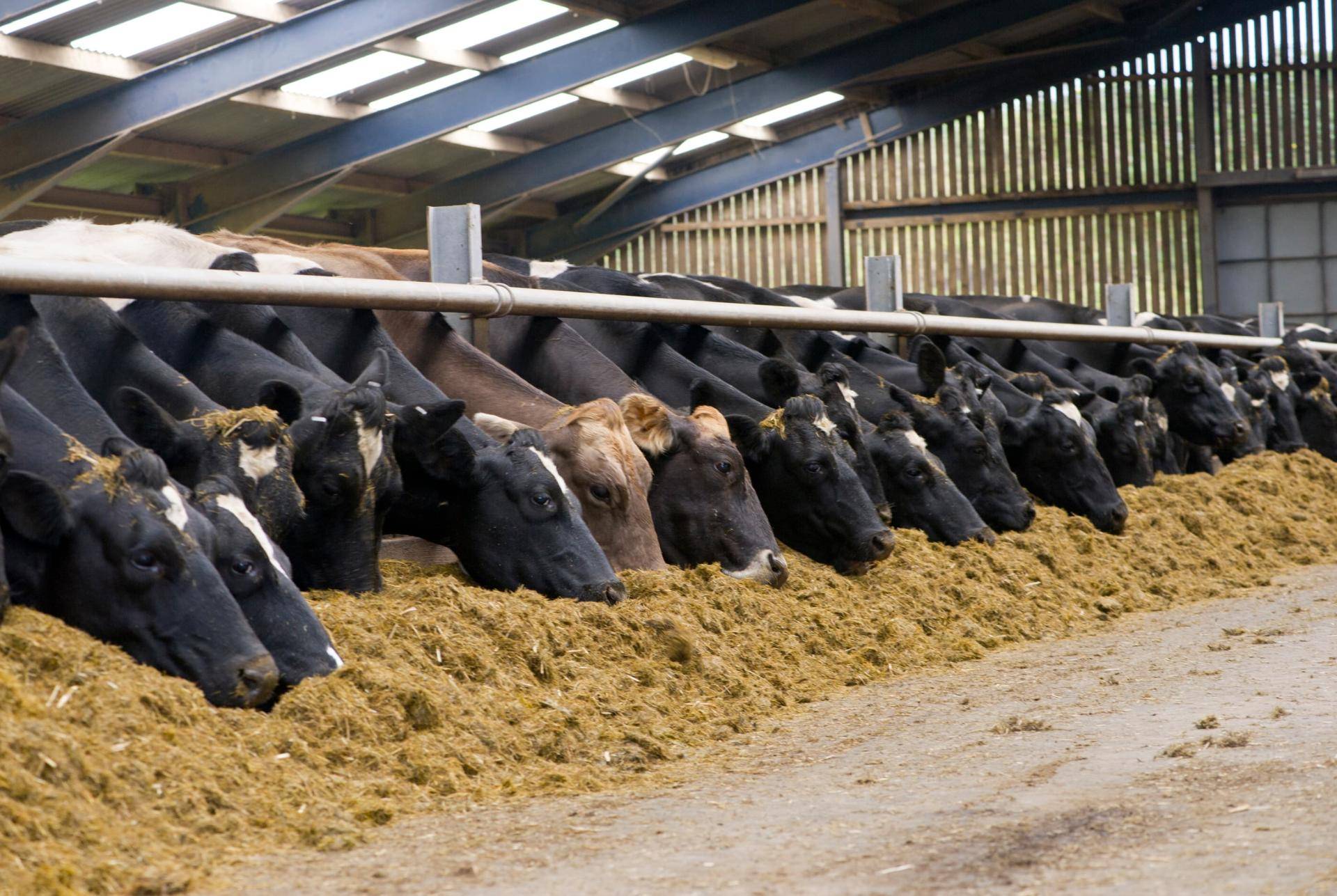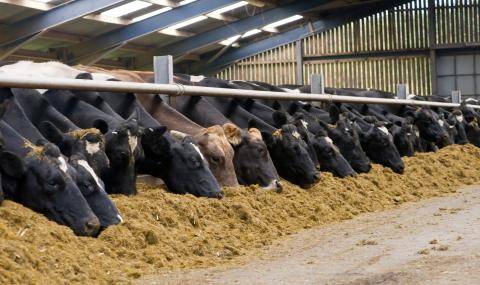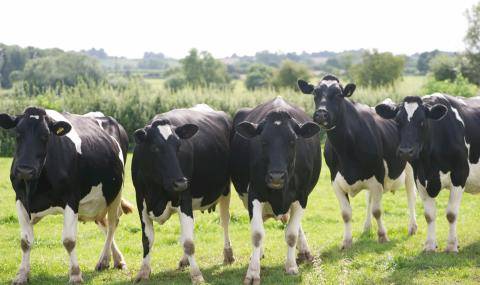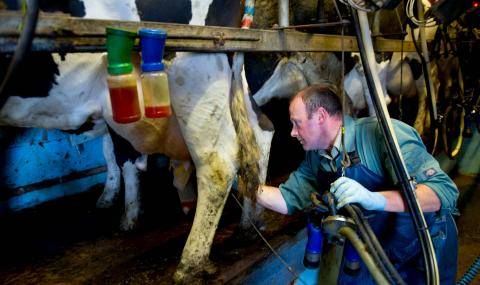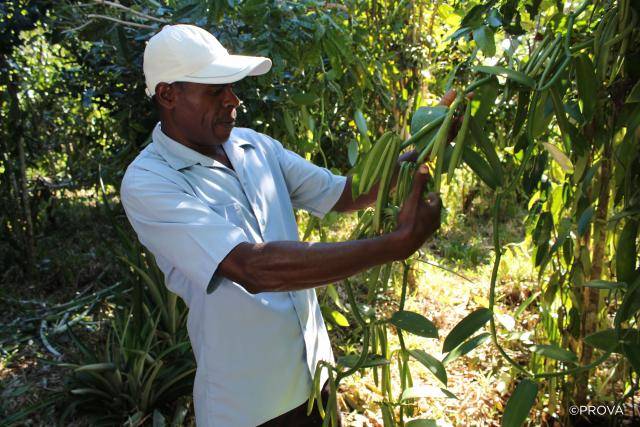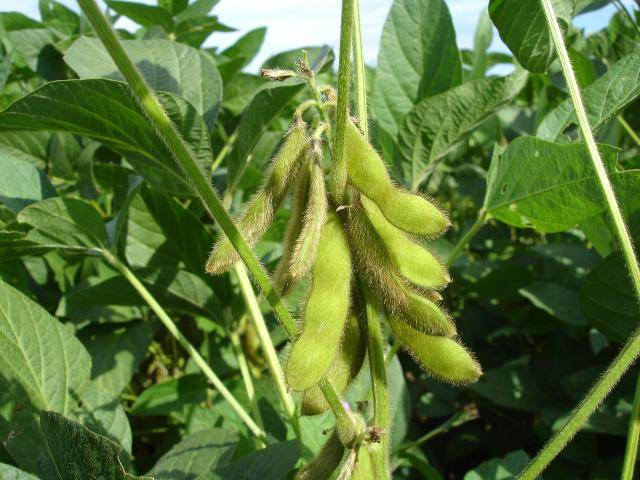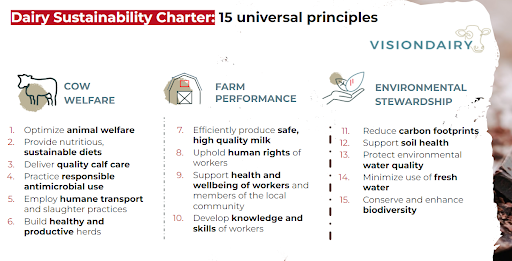
Dairy is one of the vital ingredients we use in our chocolate. With our VisionDairy program, we have developed an innovative outcome-driven approach to drive sustainability in our dairy supply chain. Our VisionDairy charter defines our understanding of sustainability in dairy and lays out the key requirements we expect our suppliers to follow with regards to animal welfare, farm performance and environmental stewardship:
- Our 15 principles are the long-term ambitions for our global dairy supply base
- The core criteria for each principle have been established to align our global dairy supply chain, and set the compulsory standards for supply
- The leadership position standards are designed to highlight farms and practices that are ‘best in class’, and through implementation of the VisionDairy Charter we will be encouraging progress towards the leadership position
- Measures on farm-level will be collected from our global dairy supply chain. Wherever possible these will be outcome-based measures, and will be used to monitor compliance with our core criteria, and measure progress towards the leadership position. This allows us to focus on and demonstrate the impacts and outcomes of the practices in our dairy supply chain.
Industry Engagement
In order to avoid duplication of efforts, we have benchmarked a range of regional sustainability standards against our VisionDairy charter and are open to benchmarking further standards. Furthermore, we are an active member of the SAI’s Dairy Working Group to engage in a dialogue and joint projects with others in the industry.
Addressing Emissions
Dairy is one of the major drivers behind our corporate greenhouse gas (GHG) emissions footprint. Reducing carbon footprints is one of the key principles in our VisionDairy charter and we are working with our suppliers to understand their current carbon footprints as well as roadmaps and targets. Barry Callebaut is further working with several companies who have developed innovative solutions to reduce greenhouse gas emissions in dairy, such as feed additives to reduce methane from enteric fermentation. We are actively engaging our suppliers on the topic to jointly reduce emissions. For example, we actively avoid methane emissions from dairy cattle using feed additives in our supply chains through a registered Verra project. This leading work with an essential oil-based feed additive leads to an absolute reduction in methane, while improving milk production and farmer economic performance for over one hundred farms participating in a validated Verra carbon program. Full details on the projects validity and methodology can be found on this page. These carbon avoided emissions will be utilized where they can be inset for our own carbon footprint, in the value chain, and as offsets where necessary. VCUs may be issued for the greenhouse gas emission reductions and removals associated with dairy products within the United States, where practicable. We are also working with suppliers and customers to develop and implement regenerative agriculture plans including cover crop in two major supply sheds in the US. This will lead to improved soil health, water quality, decreased GHG emissions, and farmer profitability.
